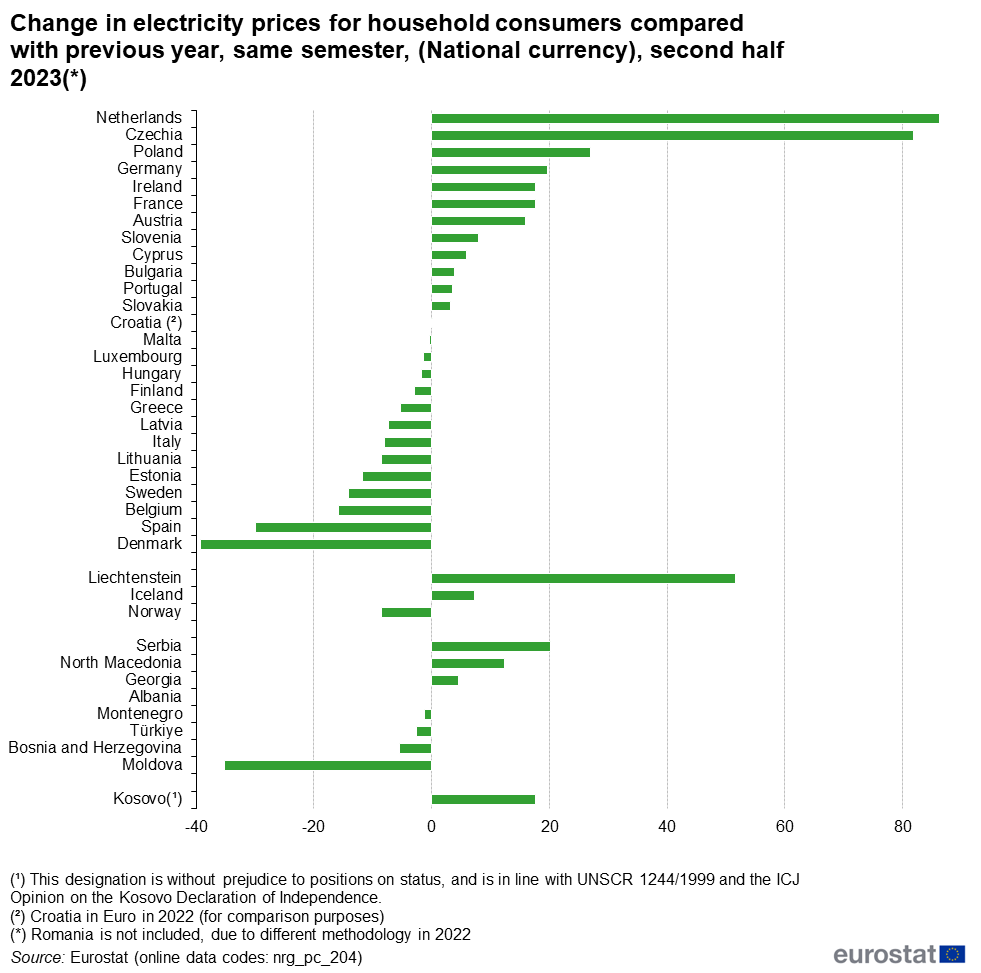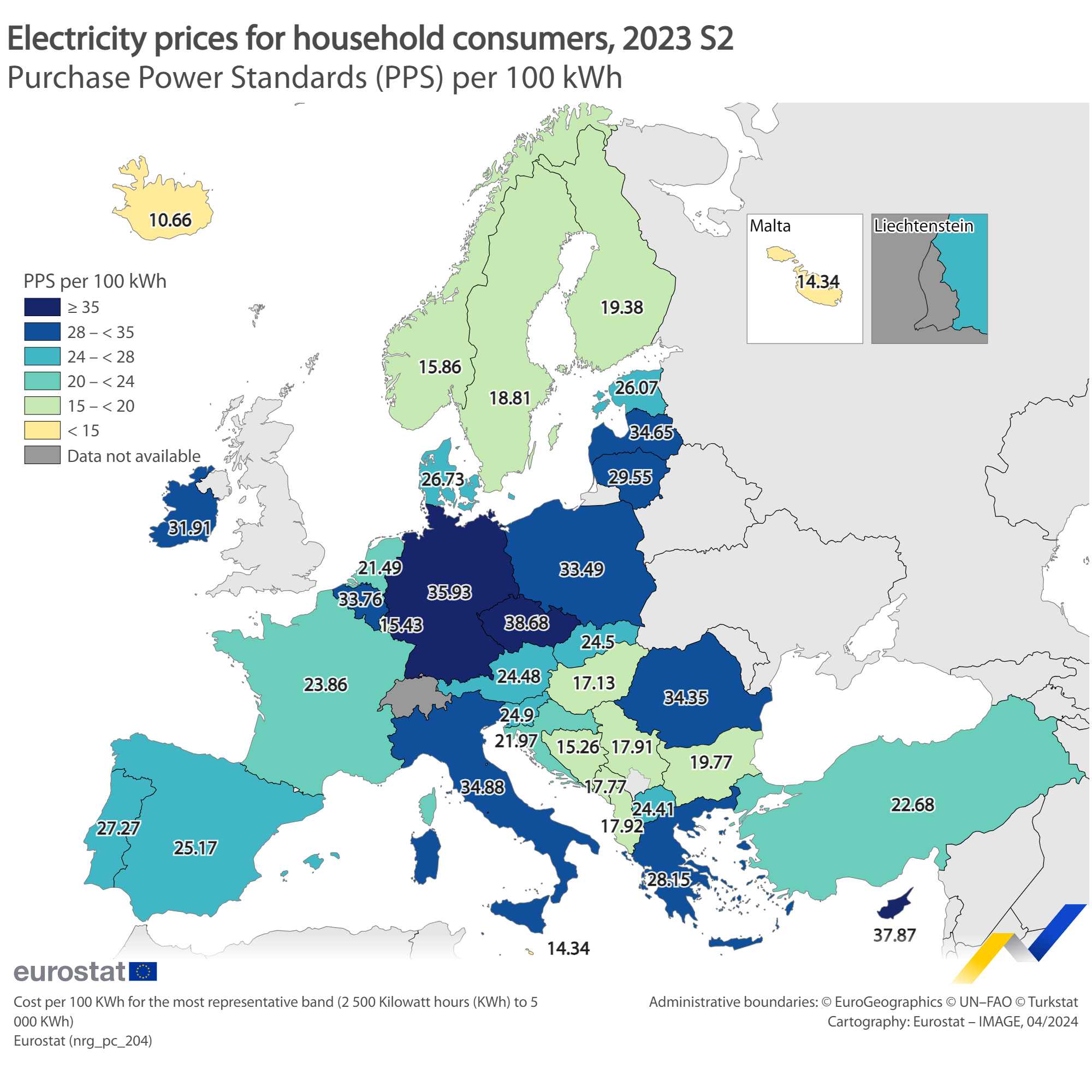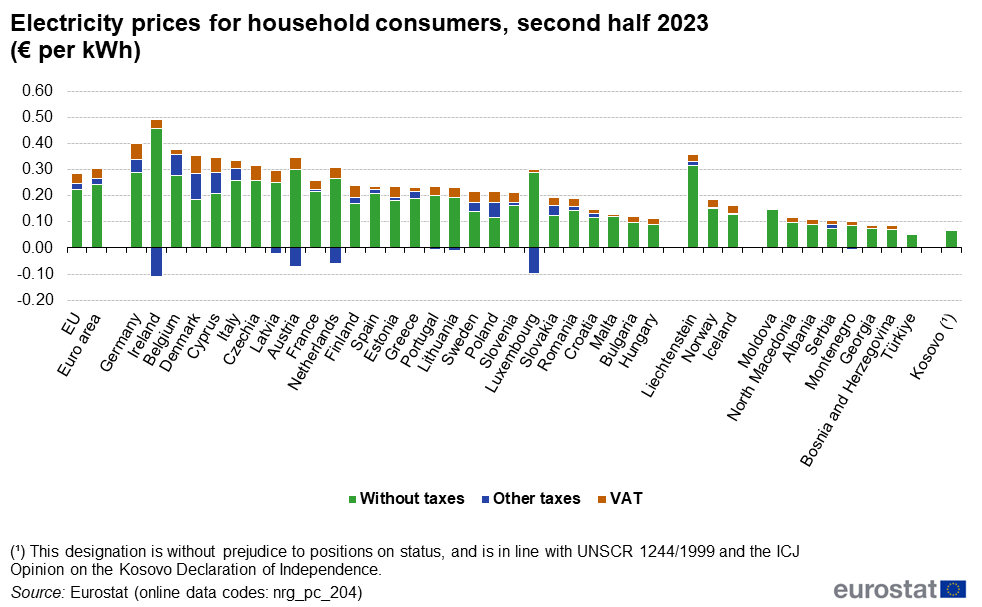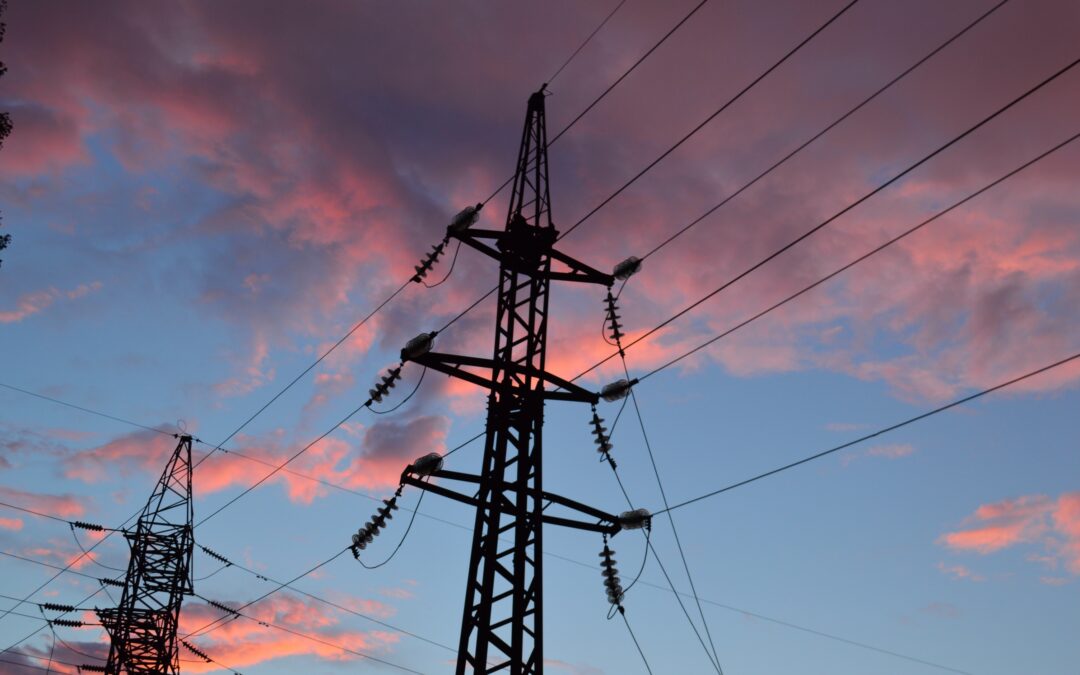Poland recorded the EU’s third-highest rise in electricity prices for households in the second half of 2023, with costs up by almost 27% on a year earlier.
The new figures from Eurostat come as the climate minister today announced that she had approved a bill raising the cap on electricity prices for households by 21% but also introducing vouchers to help poorer households pay their energy bills.

Poland’s rise of 26.9% recorded in the second half of 2023 was behind only the Netherlands (86.3%) and the Czech Republic (81.9%). Half of member states saw prices fall, with the largest drops in Denmark (39.3%), Spain (29.9%) and Belgium (15.8%).
To compare the relative costs of electricity, Eurostat uses what is known as purchasing power standard (PPS), an artificial currency unit that accounts for differences in price levels between countries. Here, Poland had the bloc’s eighth highest price of 33.49 PPS per 100 KWh.
The Czech Republic (38.7 PPS), Cyprus (37.9 PPS), Germany (35.93 PPS) had the highest costs per 100 KWh, while the cheapest power was in Malta (14.3 PPS), Luxembourg (15.43 PPS) and Hungary (17.1 PPS)

In euro terms, however, energy prices for households in Poland in the second half of 2023, at €0.2162 per KWh, were below the EU average of €0.2847 per KWh.
Prices were highest in Germany (€0.4020 per KWh), Ireland (€0.3794 per KWh), and Belgium (€0.3778 per KWh), and lowest in Hungary (€0.1132 per KWh), Bulgaria (€0.1192 per KWh) and Malta (€0.1279 per KWh).

On Friday, climate minister Paulina Hennig-Kloska announced that she had approved a bill setting energy prices, which in Poland are regulated by the state, for the second half of 2024.
The maximum price of electricity for households will increase from 412 zloty to 500 zloty (€115.7) per MWh. The maximum price for local government units, public utilities and small and medium-sized entrepreneurs will remain at 693 zloty (€160.34) per MWh.
The bill also provides for the introduction of an “energy voucher”, a cash allowance for households with the lowest income: up to 2,500 zloty (€578.4) per person for single-person households and 1,700 zloty (€393.28) per person for multi-person households.
The size of the voucher will range from 300 zloty (€69.4) to 1,200 zloty (€277.6) and will depend on the number of people in the household.
Właśnie podpisałam ustawę o cenach energii na drugie półrocze tego roku po uzgodnieniach międzyresortowych.
Zapewnia stabilność gospodarstwom domowym, mikro przedsiębiorcom i mśp. Wszystko zgodne z prawem unijnym, skonsultowane tez z UOKiK który wnosił uwagi. @MKiS_GOV_PL
— Paulina Hennig-Kloska (@hennigkloska) April 26, 2024
Hennig-Kloska received some mockery for declaring that she had “signed the bill”, a power that only the president has, rather than just approving it. But her proposals also met with more substantive criticism from both inside and outside the government.
The finance ministry noted that the cost of capping electricity prices would be higher than the climate ministry’s estimates, amounting to 8.1 billion zloty (€1.9 billion) rather than the 6.3 billion zloty (€1.5 billion) stated in the bill. The climate ministry said it will correct the bill accordingly.
The Office of Competition and Consumer Protection (UOKiK) also negatively assessed the bill, warning that “there is currently no EU legal basis allowing member states to apply – disregarding state aid rules – the proposed maintenance of reduced electricity prices for small and medium-sized enterprises”.
Projekt ws. maksymalnych cen energii właśnie napotkał górę lodową – unijne przepisy.
Z informacji Energetyka24 wynika, że KE przygląda się takim mechanizmom w Rumunii.
Zdaniem ekspertów, zaproponowane przez MKiŚ przepisy stoją w sprzeczności z unijnymi.https://t.co/ibndjX5Rv1
— Jakub Wiech (@jakubwiech) April 24, 2024
Confederation Lewiatan, an association of Polish businesses, also expressed concern that the bill in its current form could expose Poland to trouble with the EU.
“We are of the opinion that the continued application of maximum prices, as envisaged in the draft, will be incompatible with EU law,” said Paulina Grądzik, an expert from the Confederation Lewiatan.
“The alleged benefits of applying maximum prices for this group of customers are disproportionate to the risk of Poland paying billions in fines for non-compliance with EU regulations,” she added.
Czy regulacje energetyczne już zawsze będą procedowane z pogwałceniem zasad prawidłowej legislacji?@Konf_Lewiatan ma liczne zastrzeżenia, nie tylko do trybu procedowania, ale także do treści projektu przedłużającego mrożenie cen.
Wiecej info poniżej ⬇️https://t.co/v9863dJXmH— Paulina Grądzik (@paulinagradzik) April 24, 2024
Meanwhile, MPs from the opposition Law and Justice (PiS) party tabled a motion for a vote of no confidence against Hennig-Kloska.
“The scale of incompetence and chaos that prevails in the area of climate and environment is unbelievable,” said PiS MP Waldemar Buda, quoted by Polsat. “Basically, every decision and every move that comes out of the climate and environment ministry is some kind of scandal.”
Buda also estimated that the “energy voucher” proposed by the ministry would only help “a handful of people”.
“Poles will not be able to endure this. Half of Poles will become impoverished, the other half will leave to [work abroad washing] dishes or [picking] asparagus. We cannot let this happen.”
🔴 Składamy wniosek o wotum nieufności wobec Pauliny Hennig-Kloski, minister klimatu i środowiska! 👇 pic.twitter.com/piImxIHMFO
— Prawo i Sprawiedliwość (@pisorgpl) April 26, 2024

Notes from Poland is run by a small editorial team and published by an independent, non-profit foundation that is funded through donations from our readers. We cannot do what we do without your support.

Alicja Ptak is senior editor at Notes from Poland and a multimedia journalist. She previously worked for Reuters.



















